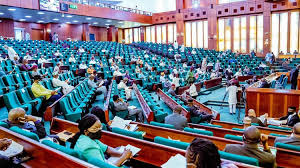Reps committee seeks Navy’s collaboration to fish out crude oil thieves
The House of Representatives Special Committee on Crude Oil Theft and Losses has appealed to the Nigerian Navy to assist it with relevant information to unravel those behind the perennial stealing of the country’s crude oil.
In a statement made available to newsmen on Sunday in Abuja after its engagement with the Chief of Naval Staff, Vice Adm. Emmanuel Ogala, the Chairman of the Committee, Rep. Alhassan Ado Doguwa, assured Ogala that information obtained confidentially by the committee would be handled with the utmost care.
According to him, “Crude oil theft is a major concern for the economy of our country, Nigeria, and on that note, we feel we have to extend our hands of fellowship to the relevant security stakeholders.
“The parliament budgeted about N28.77 trillion for the year 2024 based on the crude oil benchmark of $77.96 per barrel and the production of 1.78 million barrels per day.
“In January 2024, Nigerian oil production rose to about 1.42 million barrels per day; this represents an increase of about 6.85 per cent compared to the production figure of 1.39 million barrels per day in December 2023″.
He said there seemed to be a gradual improvement in oil production, but added that the country was still below the OPEC quota of 1.58 million barrels per day in the 2024 budget benchmark.
Doguwa said that the major reason the country was not meeting its production targets was largely attributed to crude oil theft.
“This theft is being carried out in collusion, which not only threatens the economy of the country but has even precipitated a crisis concerning national security.”
The statement quoted the Chief of Naval Staff, who agreed that oil theft remained a major challenge to the country’s economy.
He, however, lamented the shortage of personnel in the face of the vastness of the country’s waterways, which he said were over 1/10th of Nigeria’s land.
He said the Navy had less than 30,000 personnel to man the vast sea space with the operational guidelines of policing, enforcing, and assisting in coordinating enforcement.
NAN


Comments are closed.